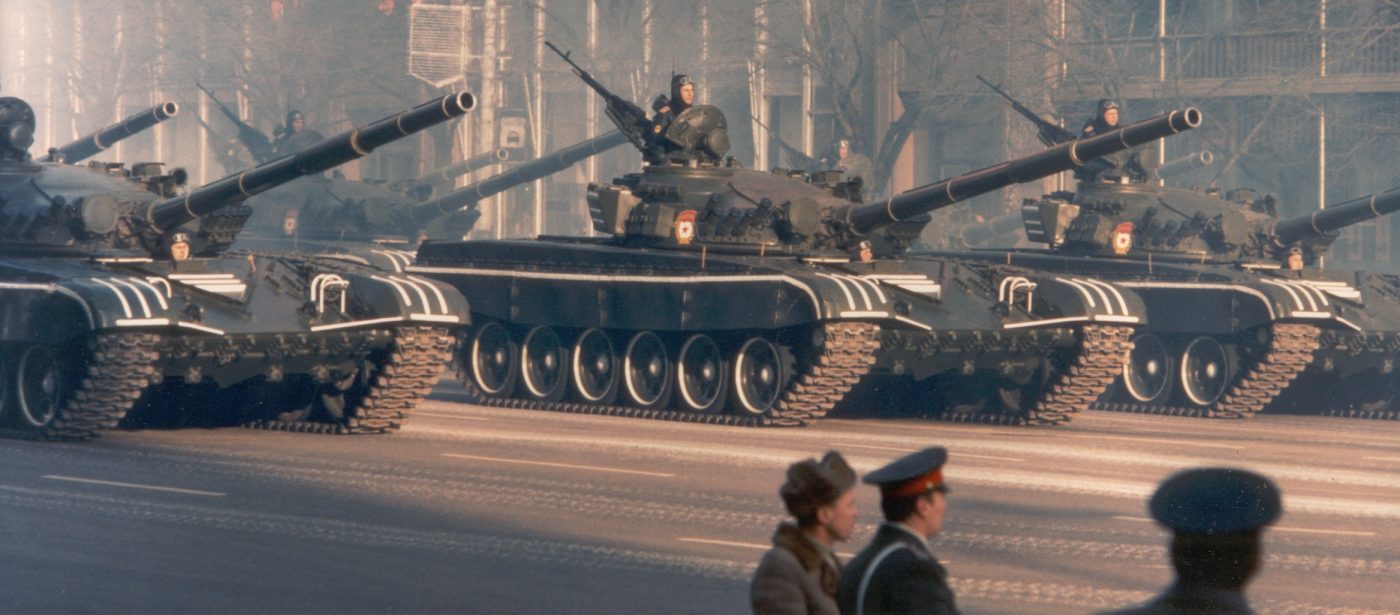Russia has announced firework displays to mark the 75th anniversary of the “liberation” of seventeen east European capitals in 1944-45. The diplomatic pyrotechnics are lively too. The Baltic foreign ministries have all called in the Russian ambassadors to protest. The end of Nazi rule in the Baltics marked the start of another occupation – one that continued ten times longer, and in some ways did far more damage. Other countries have similar experiences.
As memories of the wartime era fade, modern Russia is busy rewriting history. The origins and aftermath of the Second World War are ignored. Expect no fireworks on August 23rd, the 80th anniversary of the Molotov-Ribbentrop Pact. Officially a non-aggression pact between Nazi Germany and the Soviet Union, this included secret protocols dividing the innocent and peaceful countries of Eastern Europe between the two totalitarian regimes. Among other bloody consequences, it delivered a large part of east European Jewry into the hands of the Nazi butchers. Also overlooked are the failures of Stalin’s leadership and the dreadful price paid by the non-Russian people and places in the Soviet Union.
Instead, the central, simple narrative thread is of heroism against the bestial Nazis – exemplified by the touching “Immortal Regiment” processions held in Russia and abroad, in which Russians march carrying pictures of their veteran forbears. Anyone who disagrees or questions this must be a closet Hitlerite, the Kremlin would argue. This is nonsense. But it is effective nonsense.
Distorting the past is the basis for propaganda about the present. The Russian Foreign Ministry produces a detailed annual report on sixty countries, assessing whether they “glorify Nazism.” This is widely defined: Poland, for example, is criticized for commemorating the Warsaw Uprising.
The policy has a twist. While relentlessly decrying (mostly imaginary) fascism in countries such as Ukraine, Vladimir Putin’s regime also enjoys close links with the (real) far-right in Germany, Greece, France, Italy, and other countries.
New evidence of this emerged last week with a bombshell scoop by the U.S.-based news outlet BuzzFeed. A recording of a meeting in Moscow appears to show Italians from the far-right League party, part of the governing coalition, discussing a dodgy $65 million oil deal which would bring their party Russian money.
Earlier this year a video emerged of the leader of Austria’s far-right Freedom party at a Spanish villa, offering government contracts in exchange for support from a supposed Russian oligarch.
The details are murky. Who is making – and leaking – these recordings? Conducting politics through bugging opponents is an unhealthy habit. It is better to beat extremists and foreign puppets with facts and arguments.
But the big picture is clear. The far-right finds a lot to like in Russia: particularly the xenophobic, simplistic, nationalistic, grievance-laden approach to politics. And the Kremlin, which wants to disrupt and divide multilateral organizations like the EU and NATO, finds the sovereignty-obsessed far-right useful allies. International rules-based cooperation based on democracy, freedom and the rule of law is a nightmare for the Kremlin. An attractive, successful Western model would dangerously highlight Russia’s stagnation and lawlessness. True, there is not much sign of that right now in an era of trade wars, diplomatic spats, financial uncertainty, and general disunity. But we could recover.
Yet Russia is simultaneously pursuing links with the far Left, both the old Communist parties in places like the Czech Republic, and the more modern-minded socialists elsewhere. These leftists applaud the rhetorical commitment to “anti-fascism.” But before they book tickets for the Moscow fireworks, they should ask themselves this: if the Kremlin is genuinely worried about fascism, why are its political and practical ties with the far-right so cozy?
Correction: An earlier version of this article misdated the signing of the Molotov-Ribbentrop Pact. The treaty was signed on August 23rd, 1939.
Europe’s Edge is CEPA’s online journal covering critical topics on the foreign policy docket across Europe and North America. All opinions are those of the author and do not necessarily represent the position or views of the institutions they represent or the Center for European Policy Analysis.





